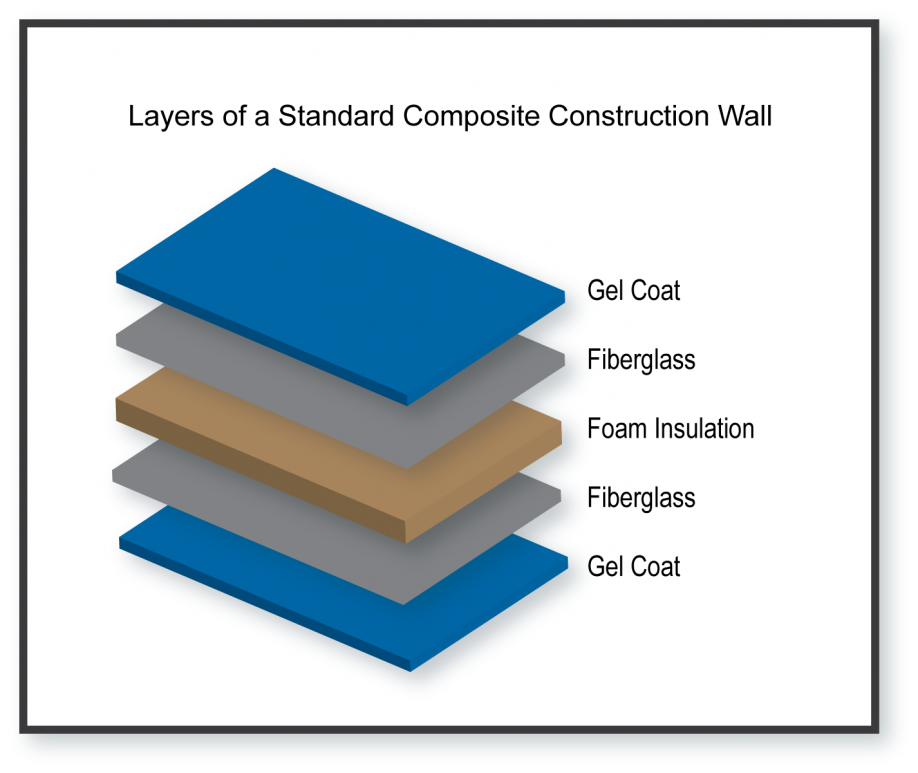The Benefits of Using Composites in Construction Materials
The Benefits of Using Composites in Construction Materials
Blog Article
Exploring the Uses and Advantages of Recycled Composites in Modern Industries
The combinations of recycled products with innovative composite technologies provides a promising opportunity for boosting sustainability, resilience, and cost-efficiency across various markets. As markets look for cutting-edge solutions to deal with environmental concerns and boost operational efficiencies, the consolidation of recycled composites emerges as a compelling choice.
Environmental Benefits of Recycled Composites
The usage of recycled composites in contemporary markets uses substantial ecological benefits, adding to the reduction of waste and the conservation of natural deposits. By incorporating recycled composites into producing processes, industries can decrease their dependence on virgin materials, thus decreasing the amount of waste generated and the power needed for extraction and manufacturing. This shift towards making use of recycled compounds aids in drawing away products from garbage dumps, alleviating the worry on waste monitoring systems, and lowering greenhouse gas emissions related to typical production practices.
Additionally, using recycled compounds promotes the preservation of natural resources such as timber, minerals, and water, which are often diminished with the extraction and processing of raw materials (composites). By prolonging the life-span of materials through recycling, industries can help maintain ecosystems and biodiversity by decreasing the need for new resources. In general, the fostering of recycled composites in contemporary industries plays an important role in advertising sustainability and alleviating the environmental influence of production procedures
Enhanced Durability in Product Production
With a concentrate on durability and robustness, integrating recycled composites right into product production processes improves toughness and sustainability. By utilizing recycled compounds, makers can create items that are not only solid but also resistant to tear and wear, making them perfect for long-term use in numerous industries. The combination of various materials in recycled compounds can commonly cause enhanced stamina and durability compared to typical materials, supplying an affordable remedy for producing resilient items.
One of the essential advantages of utilizing recycled compounds in product production is the ability to tailor the material residential or commercial properties to satisfy specific sturdiness needs. By readjusting the composition and manufacturing methods, manufacturers can customize the recycled composites to endure severe environmental conditions, hefty lots, or constant usage without endangering on efficiency. This adaptability in design and production allows for the development of very sturdy items that keep their stability over time, decreasing the need for frequent substitutes and eventually contributing to a more lasting production procedure.
Cost-Effectiveness and Economic Benefits
Integrating recycled composites into item production not only improves toughness and sustainability but likewise uses considerable cost-effectiveness and financial advantages. Making use of recycled composites can bring about reduced material expenses as recycled products are typically much less pricey than virgin materials. Additionally, recycling composite products can lower waste disposal costs and reduce the demand for land fill area, adding to total price savings for industries.

Advancement and Design Flexibility With Recycled Compounds
Using recycled composites in contemporary industries supplies unparalleled possibilities for advancement and design adaptability. By integrating recycled materials right into composite manufacturing procedures, companies can press the boundaries of traditional style restraints and check out new possibilities. The flexibility of recycled compounds enables the production of complicated forms and structures discover this that might not be attainable with conventional materials.
Among the essential benefits of recycled composites is their capability to be molded right into numerous types, providing designers the liberty to try out one-of-a-kind shapes and dimensions. composites. This flexibility opens up a globe of creative chances, enabling the advancement of light-weight yet resilient items that meet the certain demands of different markets
Additionally, the use of recycled compounds promotes lasting techniques and sustains the round economy by reducing waste and decreasing the ecological impact of making procedures. This concentrate on green design options straightens with the growing trend towards sustainability in modern industries, making recycled composites a useful resource for forward-thinking and cutting-edge firms.
Applications Throughout Numerous Industries
Recycled composites locate diverse and impactful applications across a variety of markets due to their special buildings and sustainability benefits. In the vehicle market, these products are increasingly utilized for producing resilient and lightweight parts, enhancing fuel efficiency and reducing carbon emissions. The aerospace industry advantages from recycled composites in the manufacturing of airplane parts, where the materials' strength-to-weight proportion is vital for ensuring safety and efficiency. In building and construction, these compounds are used for producing strong yet environment-friendly building products, adding to sustainable infrastructure advancement. The sustainable energy sector uses recycled compounds in wind generator blades and photovoltaic panels, harnessing their stamina and resistance to severe ecological conditions. Additionally, the aquatic market utilizes these products for producing watercraft hulls and parts, using improved sturdiness and corrosion resistance. The convenience and sustainability of recycled compounds make them valuable throughout different industries, driving technology and environmental stewardship. composites.
Verdict
In verdict, the usage of recycled composites in modern markets supplies substantial environmental advantages, boosted sturdiness in item production, cost-effectiveness, and financial advantages. The usage of recycled compounds permits for innovation and style flexibility throughout numerous markets. Generally, the fostering of recycled compounds provides a sustainable and functional solution for satisfying the requirements of the sector while additionally lowering environmental impact.

One of the crucial advantages of utilizing recycled compounds in item production is the capacity to a fantastic read tailor the material homes to meet details toughness needs. Using recycled composites can lead to lowered material prices as recycled materials are frequently less pricey than virgin materials. The aerospace sector benefits from recycled compounds in the production of airplane parts, where the products' strength-to-weight ratio is critical for making sure safety and performance.
Report this page